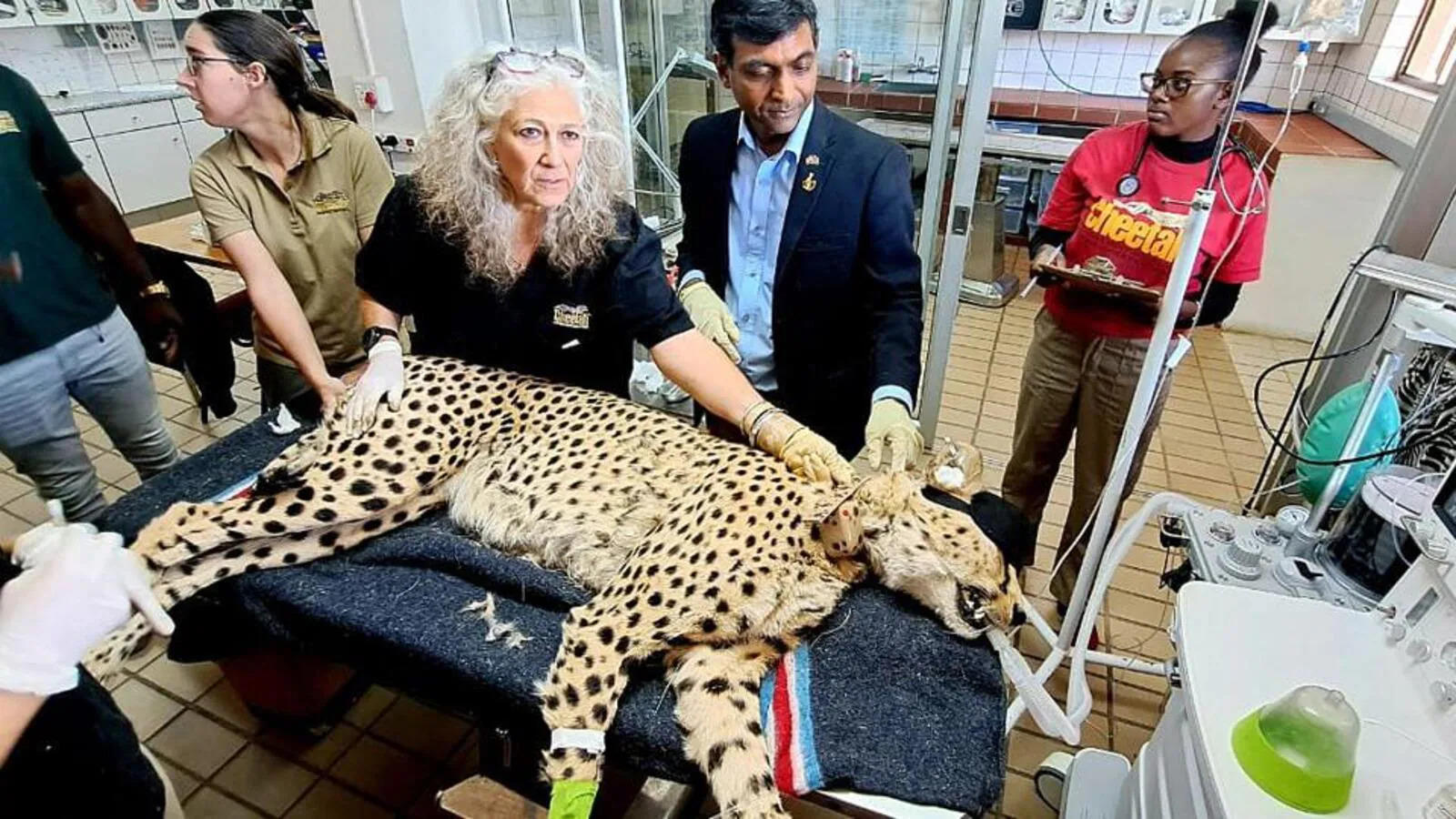"No Reason to Keep Healthy Cheetahs Restricted," says a South African expert on Kuno's Huge Cats' Long Captivity

All sides are criticising the ambitious wildlife project by the national government to increase the cheetah population in India. Three of the large cats died of septicemia over the past month, resulting in the loss of a quarter of the original population, necessitating the darting and capture of the surviving felines by forest department staff.
The radio collars of 14 cheetahs, including one lone youngster, have been removed in order to keep track of their health. They are once more housed in enclosures. Five of the big cats that were discovered to have identical infections were given a medication that will probably shield them against infections for the rest of the monsoon.
Even if there is disagreement among specialists as to when the animals should be released back into the wild, the forest department claims that all of the cheetahs are now "healthy." International specialists have advised against holding them hostage for an extended period of time as this could endanger their health further while scientists wait for the humid weather conditions to subside.
Vincent van dan Merwe, a South African cheetah expert and member of the steering committee for the Cheetah Project, spoke exclusively . Since 2011, he has been observing the expansion of cheetahs in African reserves. He is a conservation scientist and the manager of South Africa's Cheetah Metapopulation Project. excerpts from a conversation
After worries about infection, the 14 cheetahs (including one youngster) at Kuno are once more confined to enclosures. Might the cats' prolonged confinement be a problem?
The query is highly pertinent. There is always an overreaction when something goes wrong because those working on this initiative on the ground are under tremendous strain. For instance, even cheetahs without an issue with their winter coats were darted and brought back to enclosures for observation (skin infection). The cheetahs find this unnerving. As this is a well-known endeavour, the reaction is expected. If they are discovered to be healthy, however, it is undoubtedly not good to confine them to bomas.
Very stressful activities include the frequent mobilisation, relocating, and capture. So, it is challenging for the cheetahs to adapt to their new environment. Keeping them in captivity for an extended period of time will prevent them from reproducing. Relocation to the bomas is appropriate if it turns out that the cheetah's health has been impaired as a result of the skin infection. However, there is no need to confine an animal to a boma if it has been darted in the wild and is determined to be healthy.
.png)